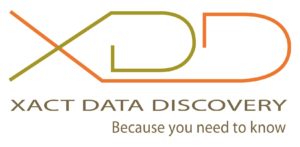The Second Circuit Considers a $2.7 Million Discovery Sanction in a $20,000 Case
In Klipsch Group, Inc. v. ePRO E-Commerce Ltd., the Second Circuit considers the appropriateness of discovery sanctions exceeding the value of the case
by Matthew Verga, JD, Xact Data Discovery
In Klipsch Group, Inc. v. ePRO E-Commerce Ltd., Case No. 16-3637 (2d Cir. Jan. 25, 2018), the Second Circuit provides a helpful reminder that sanctions for discovery misconduct must be proportional to the effect of the misconduct and not necessarily the value of the case.
In this case, the Defendant filed an interlocutory appeal of the District Court’s decision imposing discovery sanctions on it. The Defendant challenged the District Court’s imposition of approximately $2.7 million dollars in costs and fees (to compensate the Plaintiff), as well as several of the District Court’s specific “evidentiary rulings and factual findings” underpinning the imposition of sanctions.
Case Background
Over the course of the litigation, the Defendant “engaged in persistent discovery misconduct,” including:
. . . it failed to timely disclose the majority of the responsive documents in its possession, restricted a discovery vendor’s access to its electronic data, and failed to impose an adequate litigation hold even after the court directed it to do so, which omission allowed custodians of relevant electronic data to delete thousands of documents and significant quantities of data, sometimes permanently.
After some of these discovery failures came to light, the Magistrate Judge overseeing discovery authorized a second round of depositions by the Plaintiff to investigate the issues and ordered additional discovery to be completed by the Defendant. When further discovery issues were identified, the Magistrate Judge authorized the Plaintiff to obtain an independent forensic examination of the Defendant’s systems to be paid for initially by the Plaintiff with the potential for later recovery from the Defendant.

